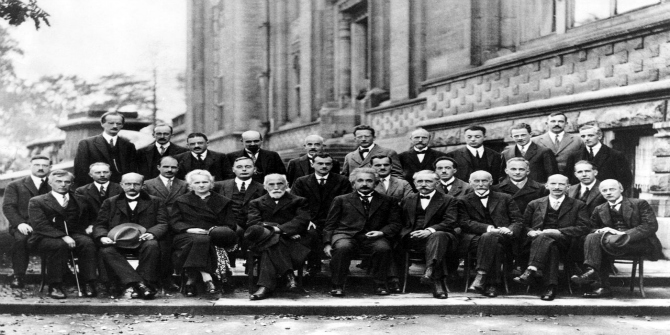
The Future of Blasphemy raises important, profound and universal questions about the purpose of blasphemy and what models should be adopted. Author Austin Dacey provides a thoughtful reflection and re-appraisal of a topic that is all too often misunderstood, finds Russell Sandberg.

The Future of Blasphemy: Speaking of the Sacred in an Age of Human Rights. Austin Dacey. Continuum. January 2012.
If you were about to set up your own society, chances are that you would not have given blasphemy much thought. However, sooner rather than later, you would have to decide the question of how your society would accommodate the religions, beliefs and ethical systems of your people. If your population were to be free to believe whatever they want and to worship whatever they want to, would they also be free to criticise the beliefs of others or to say things that others would find offensive?
In pondering these questions you would inevitably be thinking about blasphemy. Of course, you might not use that term, seeing blasphemy as conjuring up something antiquated; the use of the criminal law to punish those who do not share the sacred Truths adopted by the State. However, nonetheless, the issues that you would be facing would concern blasphemy.
This insight, that blasphemy remains important in twenty-first century society, is the major contribution of Austin Dacey’s latest book. The Future of Blasphemy raises important, profound and universal questions about the purpose of blasphemy and what models should be adopted. The strength of this book is that it transcends the usual debate concerning blasphemy which often envisages a simplistic battle between freedom of religion and freedom of expression. Instead, Dacey argues that the right to blaspheme should be seen “not only as an exercise of freedom of expression but also as an exercise of freedom of religion or conscience” (p.14) and that the blasphemy is ill-served by the discourse of international human rights.
Dacey traces the evolution of blasphemy, identifying a move towards ‘personal blasphemy’. For Dacey, the way in which the focus of blasphemy provisions changed from criminalising the “matter” discussed to the “manner” in which it was discussed led to the development of “blasphemy against the person” (p.33). A tirade against religion was no longer blasphemous in itself but was only blasphemous if it caused such offence as to disturb the peace.
Dacey argues, however, that the future “belongs not to personal blasphemy but to ethical blasphemy” (p.15). He contends that blasphemy should be understood as being ‘ethical’ in two senses. First it is ethical in that “it is primary a matter of moral and civic responsibilities, not of legal rights and obligations” and second “it is a category and a concern belonging not just to members of traditional religions, but to any person of conscience who would speak of the sacred” (p.15).
This conceptualisation of ‘ethical blasphemy’ provokes a number of questions. In terms of Dacey’s first sense, the argument sounds all too familiar. Like many non-lawyers who explore topics which have a clear legal component, Dacey reaches the conclusion that blasphemy would be better dealt with by non-legal means. The seemingly unshakeable belief present that law should not be the answer is naive. It is a simplification to juxtapose moral and civic responsibilities against legal rights and obligations. Although the criminal law may not be the best vehicle for accommodating religious freedoms that is not to say that legal mechanisms cannot play some part. A number of moral panics, such as those concerning Monty Python’s Life of Brian and Jerry Springer: The Opera show how policing blasphemy via non-legal means can be problematic. The democratic basis that underpins the law is absent in relation to rule by pressure group.
The second sense in which Dacey understands ‘ethical blasphemy’ prompts further questions. Although it is now widely appreciated that religious rights ought not only to protect traditional world religions, it has often proved difficult to work out where the line should be drawn. Dacey’s argument that protection should extend to “any person of conscience who would speak of the sacred” (p.15) would appear to run the risk of being both over- and under- inclusive. It would appear to be over-inclusive in that it would seem to protect any beliefs formed as a matter of conscience and under-inclusive in that it excludes those who do not believe in “the sacred” (however that is defined).
The fact that The Future of Blasphemy provokes a number of unresolved and difficult questions is a strength rather than a weakness. It shows that the title of the book is correct. These issues remain relevant in the twenty-first century. Although the common law offence of blasphemy has now been abolished in England and Wales, the issues raised in this book are still clearly of relevance. This is underscored by Dacey’s brief examination of the effect of the Racial and Religious Hatred Act 2006 (p.85). Although the author correctly concludes that the offences provided by the Act are narrow, he points out that a number of other criminal offences under English law are not so anodyne (including the charging of religiously aggravated offences, a development which has often been ignored in both the non-legal and legal literatures).
Although Dacey is the Representative to the United Nations for the International Humanist and Ethical Union, this book is no diatribe against religion. Instead, The Future of Blasphemy provides a thoughtful reflection and re-appraisal of a topic that is all too often misunderstood. Despite the often passionate and occasionally provocative tone and the less than thorough referencing, the analysis provided is erudite and considered. Dacey’s book merits a large readership and the questions it prompts merit a great deal of thought and discussion.
——————————————————————————————-
Dr Russell Sandberg is lecturer in law at Cardiff University where he researches at the Centre for Law and Religion. He is author of Law and Religion (Cambridge University Press, 2011), co-author of Religion and Law in the United Kingdom (Kluwer Law International, The Netherlands 2011) and co-editor of Law and Religion: New Horizons (Leuven, Peeters 2010). He is currently working on a monograph on religion, law and society for Cambridge University Press and is co-editing a volume on religion and legal pluralism for Ashgate. Read more reviews by Russell.






